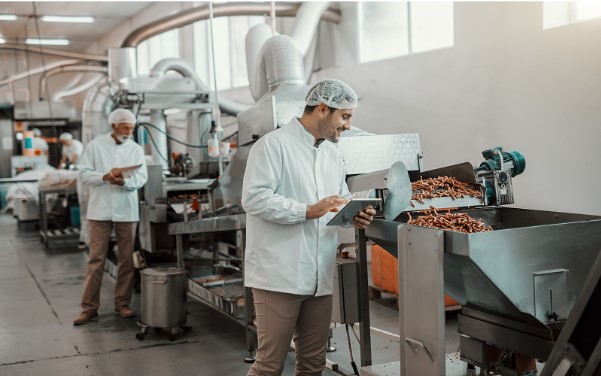Singapore offers a highly regulated and well-developed industrial infrastructure for food businesses. Food factories, from central kitchens to production units, sit within designated industrial zones with purpose-built facilities. A food factory in Singapore usually falls under B2 zoning, allowing heavier industrial activity. These properties comply with strict food safety and building standards, making them suitable for processing, storage, and packaging operations.
Demand continues rising due to increasing consumer appetite for safe and high-quality food products. Businesses entering the market or expanding must decide whether to lease or buy. Both options involve trade-offs around ownership, flexibility, costs, and operational scalability. Freehold food factory spaces remain limited, especially near urban logistics hubs, which places pressure on buyers looking for long-term value.
Buying a Food Factory in Singapore: Long-Term Control and Capital Investment
Buying provides long-term control. Businesses securing a freehold food factory benefit from full ownership rights, including development flexibility, sale potential, and financial leverage through asset appreciation. Freehold tenure means the business can hold and modify the facility without renewal worries or lease expiry.
Initial capital commitment is significant. Buyers must prepare for high upfront costs, including purchase price, stamp duties, legal fees, and potential renovation expenses. Financing options exist, but they demand strong financial backing and credit standing. Freehold food factories usually come at a premium, especially in mature industrial estates.
Ownership brings full autonomy. Businesses can reconfigure layouts, upgrade systems, or sublet spaces with fewer restrictions. Over time, this control supports operational efficiency and brand consistency. Investors seeking to future-proof their infrastructure will benefit from this approach. They gain the ability to adapt facilities as product lines evolve or as regulations shift.
Leasing a Food Factory in Singapore: Flexibility with Lower Initial Costs
Leasing remains a practical option for startups or businesses seeking operational flexibility. Leasing allows immediate access to production-ready facilities without the capital outlay of property acquisition. Tenants can preserve cash flow for machinery upgrades, talent acquisition, and marketing.
Leasehold food factory units often include essential infrastructure, including power capacity, exhaust provisions, and flooring built for industrial use. Most leases last between three to ten years, with renewal clauses. Rent depends on size, location, facility age, and landlord policies. Government agencies and private developers both offer leasing opportunities in industrial zones.
Leasing reduces long-term risk. Businesses unsure of long-term production volume or market conditions can scale up or down based on lease expiry. However, this flexibility comes with limitations. Tenants cannot easily restructure the space or commit to long-term investments that rely on property customisation. Lease renewals may involve higher rents, stricter terms, or non-renewal risks.
Comparing the Two: Strategic Fit for Business Models
The decision between buying and leasing should match business goals. A food processing firm planning consistent output and long-term market presence may benefit more from purchasing a food factory in Singapore. Asset ownership also enhances business credibility when seeking contracts, certifications, or investment partnerships.
On the other hand, lean business models such as cloud kitchens or short-term production partnerships will benefit from leasing. These businesses focus on agility and fast market entry. Leasing supports these needs by offering plug-and-play units in established food hubs.
Future scalability matters. If the company plans to expand across Southeast Asia, tying capital in property may slow growth. Leasing leaves room for fast relocation, while buying ties operations to one place. Ownership suits stable operations; leasing suits fast-changing environments.
Operational and Regulatory Considerations
Compliance plays a key role. Owners take full responsibility for meeting building, fire, and health codes. Tenants share this responsibility, though many landlords assist with upgrades. Businesses must also ensure the premises meet Singapore Food Agency (SFA) and National Environment Agency (NEA) guidelines before beginning operations.
Maintenance and repair fall under the owner’s purview. Buyers must budget for periodic upgrades and unforeseen issues. Tenants rely on landlords for structural repairs but handle daily upkeep. In either case, smooth operations demand planning, inspection, and consistent engagement with local regulators.
The location also affects logistics and staffing. Proximity to ports, expressways, and residential estates influences recruitment, delivery timelines, and service costs. While freehold food factory units provide long-term value in strategic zones, leases may offer better locations temporarily or with lower commitment.
Conclusion: Choose What Supports Long-Term Efficiency
Securing a food factory in Singapore involves aligning business goals with operational requirements and financial capacity. Buying a freehold food factory brings ownership, autonomy, and long-term investment value. Leasing offers cost flexibility, mobility, and less capital risk. Businesses must evaluate how much space, control, and financial exposure they are willing to manage.
Opting for either must serve the company’s purpose and scale. Stability, expansion plans, and funding access remain critical decision points. One direction becomes clear, investing in a food factory—whether leased or owned—positions the business for streamlined production and reliable output.
Explore the right facility today. Contact EcoFood @ Mandai for a strategically located food factory in Singapore that supports your production needs and business goals.


